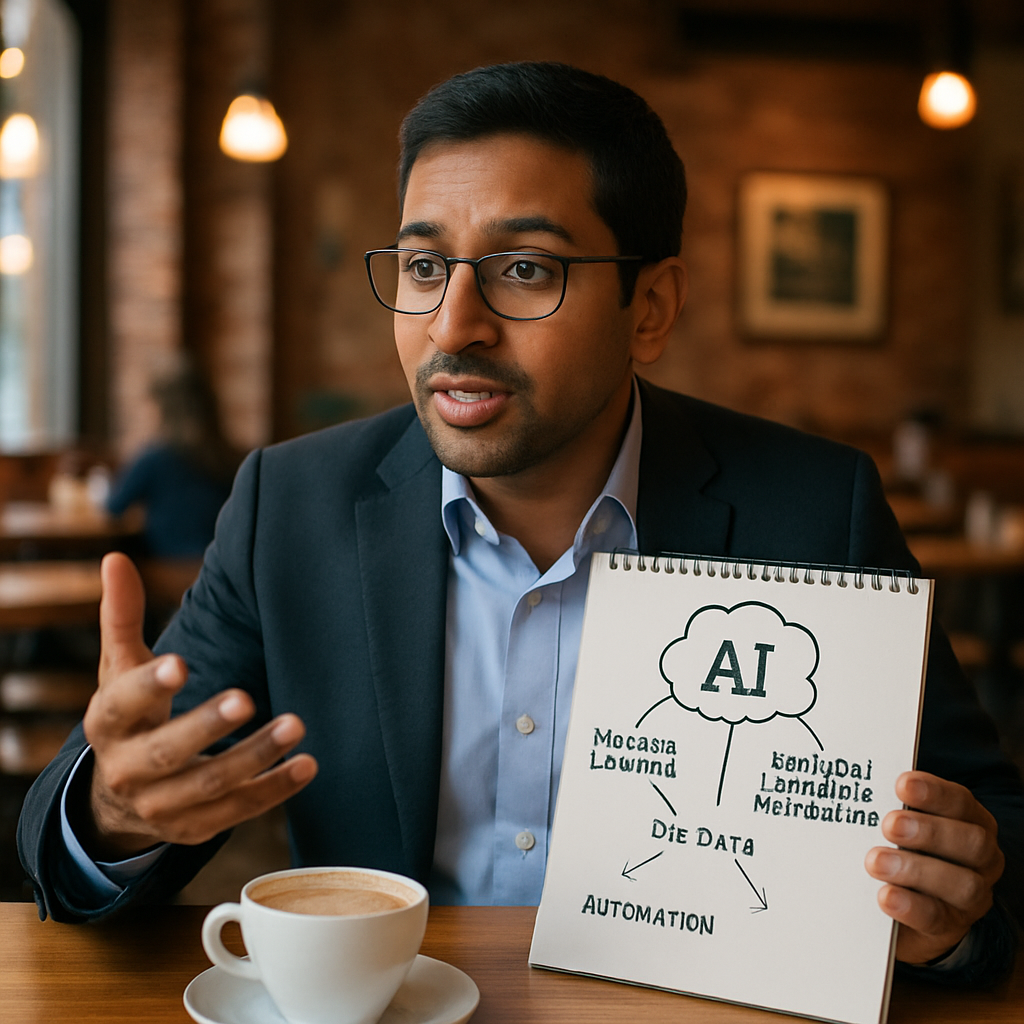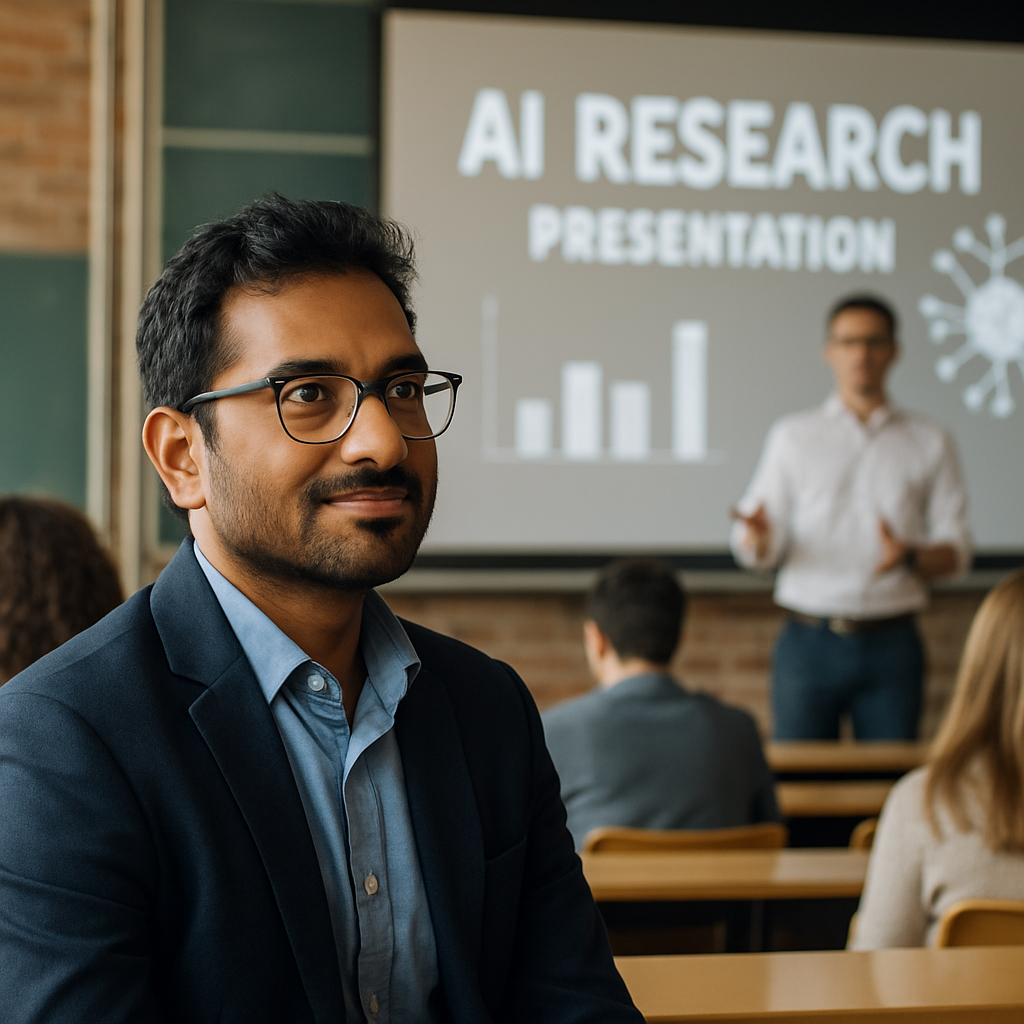The artificial intelligence sector delivered groundbreaking innovations this week while industry leaders warned of mounting bubble concerns. From NASA’s solar forecasting breakthrough to Google’s AI-powered hardware launch, the tech world showcased transformational capabilities amid growing market skepticism.
NASA and IBM Transform Space Weather Prediction
NASA and IBM unveiled Surya, the first AI foundation model for heliophysics that predicts solar flares up to two hours in advance. The open-source model, trained on nine years of high-resolution solar data, improves forecasting accuracy by 16 percent.
“Think of this as a weather forecast for space,” said IBM’s Juan Bernabe-Moreno.
The breakthrough protects satellites, power grids, and astronauts from dangerous solar storms. NASA embedded decades of expertise into AI for unprecedented speed and precision in understanding the Sun.
OpenEvidence achieved another medical milestone. Its AI system became the first to score 100 percent on the U.S. Medical Licensing Exam. The company published reasoning and references for each question, showcasing transparent decision logic that advances healthcare AI validation.
China Challenges Western AI Dominance
Beijing-based DeepSeek released DeepSeek-V3.1, a new language model with enhanced “hybrid inference” capabilities. The upgraded system boasts stronger agent capability for complex tasks, observers note.
Industry experts say the open-source model rivals OpenAI and Anthropic offerings, signaling China’s rapid progress in closing the AI gap. DeepSeek adjusted API pricing to attract more developers. This strategic move demonstrates China’s commitment to competing globally in AI services and infrastructure.
Google Bets Big on AI Hardware Integration
Google transformed its “Made by Google” event into a star-studded AI showcase. The company unveiled the Pixel 10 smartphone lineup, emphasizing on-device AI features that differentiate from competitors.
Celebrities like Jimmy Fallon and the Jonas Brothers demonstrated real-world applications. Features include an AI photo coach and proactive assistant that surfaces relevant information automatically.
“There has been a lot of hype about AI in phones and frankly a lot of broken promises too, but Gemini is the real deal,” said Google hardware chief Rick Osterloh.
The company kept prices flat at $799 despite tariff concerns, prioritizing AI differentiation over premium pricing.
At its Security Summit, Google introduced AI-automated cybersecurity tools. The “agentic SOC” software uses AI agents to triage alerts and investigate incidents. This allows human analysts to focus on critical decisions while AI handles tedious tasks.
Strategic Moves Shape Competitive Landscape
Meta Platforms enacted an abrupt hiring freeze in its AI division after aggressive talent acquisition. The company had hired over 50 top researchers for its superintelligence initiative but paused to “create solid structure” for the team.
Microsoft expanded its NFL partnership to integrate Copilot generative AI across team workflows. Over 2,500 new Surface tablets loaded with AI analytics will deploy to all 32 teams. Features include real-time play analysis and predictive systems for weather and equipment issues.
Why Investment Pressures Are Building Now
Character.AI explores potential sale options or new funding amid operational cost pressures. The popular chatbot maker faces mounting expenses despite explosive user growth.
Nvidia remains the AI market bellwether as earnings approach. Analysts expect $1.01 per share earnings, up 48.5 percent year-over-year, with revenue forecast at $46 billion. The company’s stock maintains investor interest despite broader market concerns about AI valuations.
Even OpenAI’s Sam Altman acknowledged investment exuberance.
“We’re in a bubble,” Altman stated frankly, adding weight to growing concerns about irrational market behavior in AI investments.
Geopolitical Tensions Reshape Tech Strategy
President Trump considers allowing Nvidia and AMD limited AI chip sales to China under a controversial “pay-to-export” model. The proposal would require a 15 percent revenue cut to Washington for high-end GPU shipments.
This unprecedented export-tariff scheme draws bipartisan congressional concern. Critics worry it blurs national security lines while supporters see creative solutions to maintain technological leadership.
Nvidia develops a new China-specific chip based on upcoming Blackwell architecture. The processor will outperform current H20 models while technically complying with U.S. export rules through less advanced components.
Healthcare and Industry Applications Accelerate
Epic Systems develops over 200 AI features for hospital efficiency improvements. West Tennessee Healthcare deployed AI systems for patient discharge planning, reporting significant operational gains.
Texas Attorney General Ken Paxton launched an investigation into AI chatbots for mental health. The probe examines whether Meta and Character.AI mislead vulnerable users by impersonating licensed therapists without proper qualifications.
What Business Leaders Should Know
Public sentiment reveals growing AI anxiety. Reuters polling shows 71 percent of Americans fear AI will permanently eliminate jobs, while 77 percent worry about political chaos from AI-generated misinformation.
These pressures fuel policy action demands. Lawmakers propose bills ranging from strict AI limits to updated liability laws holding companies accountable for AI-related harms.
Despite bubble warnings, AI demand remains robust across sectors. Portfolio managers emphasize taking long-term views as capabilities continue expanding into healthcare, defense, and creative industries.
The current wave exemplifies breakthrough innovation balanced by emerging regulatory frameworks. As Altman noted,
“Someone is going to lose a phenomenal amount of money and a lot of people are going to make a phenomenal amount of money” in this AI transformation.


